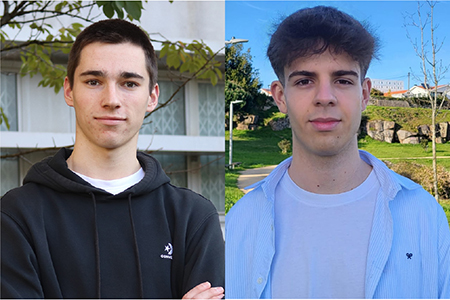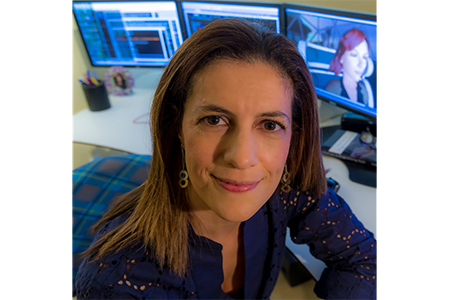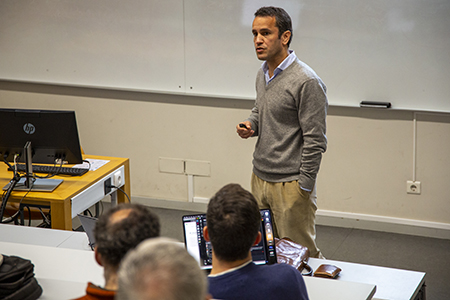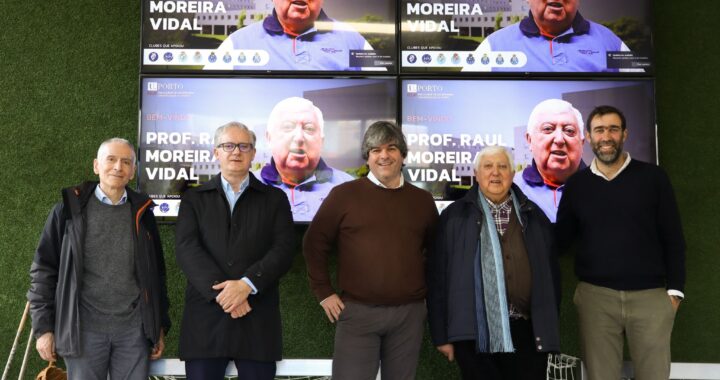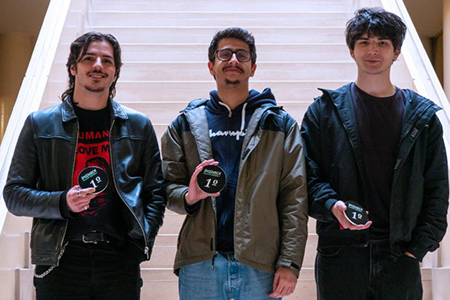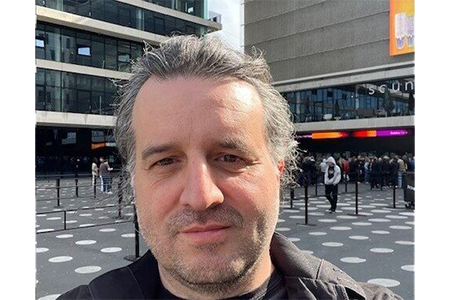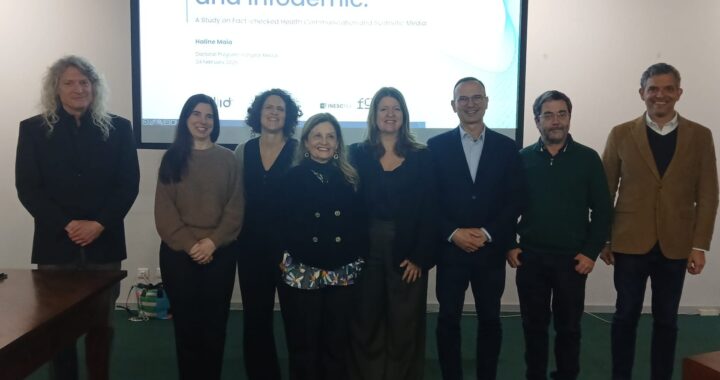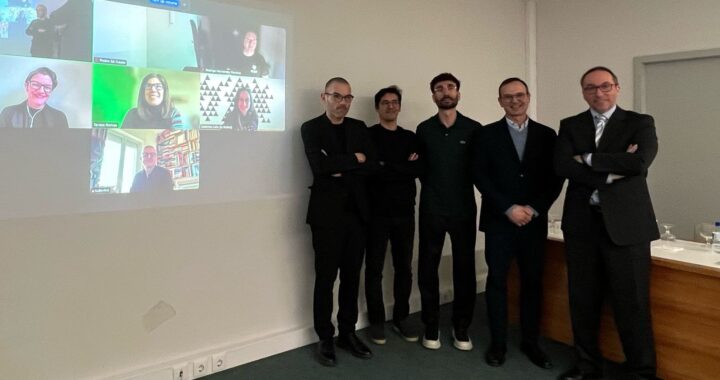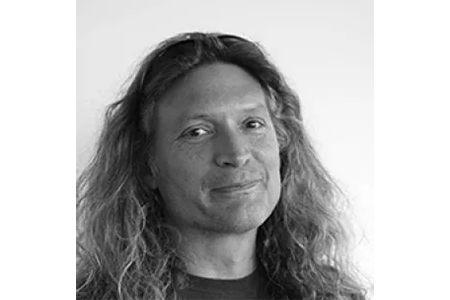Candidate:
Pedro Miguel Sá Couto Condeço Ribeiro
Date, Time and Place:
February 19th 2025, at 9:30, Sala de Atos (L202A), Department of Industrial Engineering and Management of the Faculty of Engineering of University of Porto
President of the Jury:
António Fernando Vasconcelos Cunha Castro Coelho, PhD, Associate Professor with Habilitation, Department of Informatics Engineering, Faculdade de Engenharia, Universidade do Porto.
Members:
Rodrigo Hernández Ramírez, PhD, Senior Lecturer in Design da Sydney School of Architecture, Design and Planning da The University of Sydney, Austrália;
Luísa Maria Lopes Ribas, PhD, Assistant Professor, Design and Communication Department, Faculdade de Belas Artes, Universidade de Lisboa;
Teresa Isabel Lopes Romão, PhD, Associate Professor, Department of Informatics, Faculdade de Ciências e Tecnologia, Universidade Nova de Lisboa;
Catarina Franco Lélis da Cruz, PhD, Assistant Professor, Department of Communication and Art, Universidade de Aveiro;
José Miguel Santos Araújo Carvalhais Fonseca, PhD, Full Professor, Department of Design, Faculdade de Belas Artes, Universidade do Porto (Supervisor);
Rui Pedro Amaral Rodrigues, PhD, Associate Professor, Departament of Informatics Engineering, Faculdade de Engenharia, Universidade do Porto.
The thesis was co supervised by Pedro Cardoso, PhD, Assistant Professor, Department of Design, Faculdade de Belas Artes, Universidade do Porto.
Abstract:
Shadow libraries are media repositories whose primary goal is to enable access to resources that were previously restricted or inaccessible through other means. These informal publishing streams have the additional capacity to interface knowledge that does not fit or does not aim to fit within formal distribution models.
As a case study, we researched Portuguese-student shadow libraries (PSSLs) as spaces significant beyond their distributive capacity. Through physical, digital and hybrid interfaces, PSSLs challenge contemporary access to published research, enabling community members to produce and distribute informal knowledge and actively questioning the stability of peers’ roles, dependencies, and interdependencies.
This research started by investigating PSSLs community members’ current needs and requirements. Subsequently, we analysed how prominent shadow libraries align with these needs and how available platforms have the necessary affordances to respond to them. Informed by present constraints, we established a set of software requirements to support the creation and transformation of multiple shadow libraries, enable the collection of plural voices and interventions, and ensure these spaces accommodate a diverse range of resources.
In the second moment of our research, we studied shadow libraries from a new lens. We explored potential library discourses using mechanics from pervasive games as a tool with particular traits and potential. In the context of this research, these are particularly relevant due to their capacity to extend experiences beyond fixed timeframes, leading to users’ sustained and continuous involvement; extend the relationship between users and their environment, exploring the boundaries between physical and digital spaces; extend the possible interfaces for interaction introducing new hypotheses for interaction and user engagement; extend the dynamics between users and their community by integrating external variables and reshaping social interactions; extend users’ engagement at a more personal and meaningful level.
Through a practice-based research methodology, we led community members to reconsider shadow library’s distribution and production dynamics, as well as community interactions. Contributions from these explorations establish a holistic set of design strategies that challenge dominant shadow library practices and highlight the importance of protecting projects’ motivations, community requirements, dependencies, and informal principles. Collectively, the strategies and dependencies identified establish a framework for expanding shadow libraries in response to communities’ evolving needs, ultimately shaping access, distribution, production, and publication of knowledge, and peer synergies.
Keywords:
Shadow Libraries; Peer-produced knowledge; Design; Pervasive Games; Game mechanics; Publishing.
